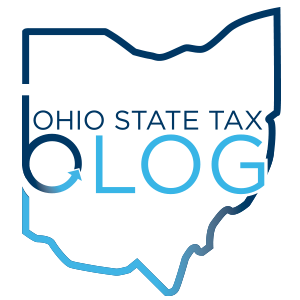Will Governor’s Kasich’s Proposed Budget Significantly Increase the Tax Burden on Ohio Businesses?
Governor Kasich’s tax policy since taking office has been clear – lowering the income tax burden, especially for small business owners, will increase Ohio’s attractiveness to businesses. So, it is not surprising that the 2016 – 2017 budget proposal includes an over 20% reduction in the Ohio income tax rate and completely exempts income from certain small businesses. However, to replace this tax revenue, the proposed budget would significantly increase the tax burden on business-to-business transactions.
Kasich’s budget proposes the following changes to Ohio’s business taxes: (1) increase the state sales tax rate from 5.75% to 6.25%; (2) expand the sales tax base to include a variety of ambiguously-defined services provided to businesses, including management consulting, market research, public relations, debt collection, and lobby services; (3) increase the commercial activity tax rate (CAT) from 0.26% to 0.32%; and (4) imposing a 6.5% severance tax on oil and gas production from horizontal wells, i.e., fracking wells (a 4.5% rate applies for certain products).
Particularly troubling, the sales tax expansion is specifically intended to increase the tax burden on consumption by businesses and ambiguously defines the newly-added taxable services. For example, one might expect lobby service to be defined as those provided by registered lobbyists. Instead, as proposed, lobbying service would include “any activity that serves to influence the behavior or opinion of an individual, an industry, or an organization.” This definition would encompass an incalculable number of services – including potentially legal, accounting, and other professional services – significantly increasing costs incurred by all Ohio businesses in their normal operations. Further, such an expansive sales tax would incentivize businesses to engage out-of-state firms lacking an Ohio presence, and without an obligation to collect Ohio sales tax, to perform such services (although the purchasing business would be required to self-remit use tax on such purchases).
Fred Nicely from the Counsel on State Taxation testified that the definitions of the proposed-taxable services “are far from precise, which leads to questions on how the Department of Taxation would audit such services … [and] would certainly lead to protracted litigation.” Likewise, Kelvin Lawrence, the Taxation Law Committee Chair of the Ohio State Bar Association, testified that “[t]he definitions for the services subjected to Ohio state and use tax in H.B. 64 are so imprecise as to make it difficult or impossible to determine which services are taxable.” Although reducing Ohio’s income tax burden on small-business owners is beneficial in theory, doing so by increasing other taxes is problematic and contradicts the Governor’s overall objective of making Ohio more business friendly. As currently proposed, the overall tax burden on Ohio businesses could actually increase, which would be compounded by the uncertainty and “protracted litigation” taxpayers would encounter regarding the broadened Ohio sales and use tax.
The Ohio General Assembly, which is required by law to approve and sign the budget by June 30, has already begun deliberations on the proposed budget. There will certainly be more to come on over the next several months. If you have any questions regarding Gov. Kasich’s budget and how it may affect you and your business, please contact Steve Dimengo, Rich Fry, or Casey Davis.
